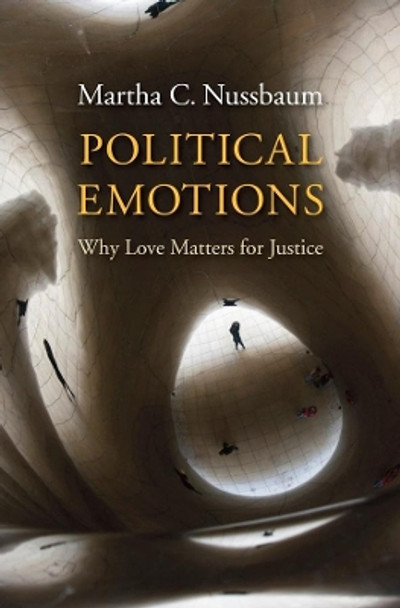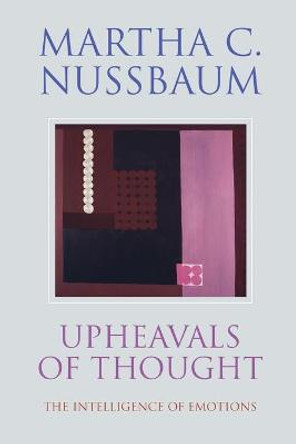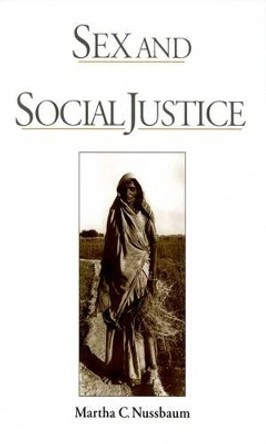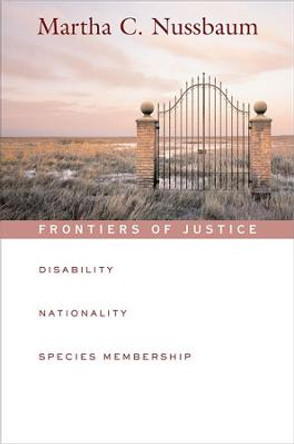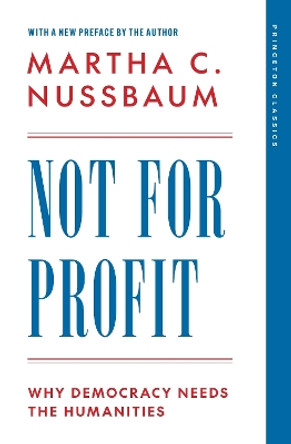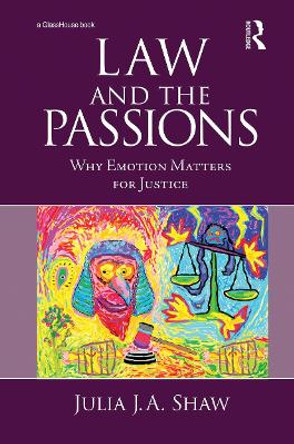Description
How can we achieve and sustain a "decent" liberal society, one that aspires to justice and equal opportunity for all and inspires individuals to sacrifice for the common good? In this book, a continuation of her explorations of emotions and the nature of social justice, Martha Nussbaum makes the case for love. Amid the fears, resentments, and competitive concerns that are endemic even to good societies, public emotions rooted in love-in intense attachments to things outside our control-can foster commitment to shared goals and keep at bay the forces of disgust and envy.
Great democratic leaders, including Abraham Lincoln, Mohandas Gandhi, and Martin Luther King Jr., have understood the importance of cultivating emotions. But people attached to liberalism sometimes assume that a theory of public sentiments would run afoul of commitments to freedom and autonomy. Calling into question this perspective, Nussbaum investigates historical proposals for a public "civil religion" or "religion of humanity" by Jean-Jacques Rousseau, Auguste Comte, John Stuart Mill, and Rabindranath Tagore. She offers an account of how a decent society can use resources inherent in human psychology, while limiting the damage done by the darker side of our personalities. And finally she explores the cultivation of emotions that support justice in examples drawn from literature, song, political rhetoric, festivals, memorials, and even the design of public parks.
"Love is what gives respect for humanity its life," Nussbaum writes, "making it more than a shell." Political Emotionsis a challenging and ambitious contribution to political philosophy.
About the Author
Martha C. Nussbaum is the author of The Fragility of Goodness, The Monarchy of Fear, and Citadels of Pride, among other works. She is the Ernst Freund Distinguished Service Professor of Law and Ethics at the University of Chicago, where she is in the Law School and Philosophy Department. She has received three of the world's most significant awards for humanities and social science: the Kyoto Prize, the Berggruen Prize, and the 2021 Holberg Prize.
Reviews
[Nussbaum] maps out the routes by which men and women who begin in self-interest and ingrained prejudice can build a society in which what she calls 'public emotions' operate to enlarge the individual's 'circle of concern'... Those who would extend the sympathy individuals feel to include fellow citizens of whatever views, ethnicity, ability or disability must 'create stable structures of concern that extend compassion broadly.' Those structures cannot be exclusively rational and philosophical-as they tend to be in the work of John Rawls and other Kantian liberals-but must, says Nussbaum, be political in the sense that they find expression in the visible machinery of public life... It is one of the virtues of Nussbaum's book that she neither shrinks from sentimentality (how could she, given her title and subtitle?) nor fears being judged philosophically unsophisticated. -- Stanley Fish * New York Times *
Continuing her philosophical inquiry into both emotions and social justice, Nussbaum now makes the case for love, arguing that emotions rooted in love can foster commitment to shared goals and keep fear, envy and disgust at bay...To sustain democratic institutions, Nussbaum claims, a liberal society should cultivate the emotions that underpin imagination and sympathy for others, and the way to do this is through education and the arts. Imaginative capacities will be developed very early in the family, and should be furthered via art, poetry, music and literature. These skills enable us to see each person's fate in every other's, and to picture it vividly as an aspect of our own. For Nussbaum, the liberal tradition should not cede emotion to anti-liberal forces (fascism, for example, was particularly good at using emotions for political ends). But all political principles need a proper emotional basis to ensure their stability over time, and all decent societies need to guard against division by cultivating appropriate sentiments of sympathy and love. This is why political emotions, narrative imagination, and love matter for justice. -- Marina Gerner * Times Literary Supplement *
Martha Nussbaum has been a productive and creative commentator on the questions raised by A Theory of Justice, and her book Political Emotions is a long and thoughtful discussion of one of them: How can we engage the citizens' emotions...on behalf of a more just, more inclusive, gentler, and more imaginative society? ...Nussbaum takes Rawls's account of justice as her starting point, but she greatly extends its range. She wants to turn away from hypothetical and bloodless contractors behind the veil of ignorance to focus on our actual flesh-and-blood selves. -- Alan Ryan * New York Review of Books *
Impressively erudite. -- Julian Baggini * Financial Times *
There's no more interesting or persuasive writer on the wider and connected subjects of emotions and social justice than Martha Nussbaum... Here she brings together strands that go back to her own The Fragility of Goodness (1986), and in the process delivers a book as important in its way as John Rawls's definitive but slightly bloodless A Theory of Justice. Here, she draws on aesthetics as well as philosophy to make her point... It's a great book, though, and goes straight on the shelf beside John Rawls. Political morality for the new age. -- Brian Morton * Glasgow Herald *
Martha Nussbaum's is one of the most influential and innovative voices in modern philosophy. Over the past four decades, a steady stream of books and articles has issued from her prodigious mind. She stands out among her contemporaries for insisting that philosophy must be rigorous and, above all, useful... The book demonstrates how people of different identities can be brought together around a common set of values and political principles through the power of art and symbol... As a culmination of her monumental contribution to academia, in Political Emotions she has produced an incandescent work that will not only be an inspiration to scholars and lay readers alike, but be a beacon for societies that aspire to justice and goodness. -- Govindan Nair * The Hindu *
Nussbaum [is] one of the finest theorists on law and ethics... Her journey is a tour de force that travels through Greek and Indian epics, the music of Mozart in 'The marriage of Figaro,' the poems of Rabindranath Tagore and Walt Whitman, the rhetorical speeches of Abraham Lincoln, Mahatma Gandhi and Martin Luther King Jr., the writings of John Stuart Mill, Jean-Jacques Rousseau, B.R. Ambedkar, Auguste Comte and John Rawls to make a case for establishing just societies by foregrounding emotions that can be developed through critical reasoning... Then she, with incisive brilliance, investigates three emotions that pose special problems for compassionate citizenship: fear, envy and shame and also explain that some societies instead of combating them make the situation worse... Her magnum opus. -- A. S. Panneerselvan * The Hindu *
This volume is impressive for its breadth of references in liberal political philosophy to literature and art theory, but all the more impressive for the care and enthusiasm expressed for the subject matter. The heart of the book, and what makes it a rather novel contribution, is Nussbaum's attention to the psychology of emotions, particularly in how she draws upon the lessons of attachment theory to inspire lessons for building a caring, loving society and a rich notion of political justice... Political Emotions is an exciting contribution to liberal political theory. Nussbaum's recent forays in bridging political philosophy with attention to aesthetic affect, emotion and attachment have genuinely enriched the terrain of liberal theory. Hopefully the discussions Nussbaum introduces here will help to enrich our collective public life as well. -- Michael Larson * Metapsychology *
[Nussbaum] reinstates the role of emotion in politics and draws attention to and rejects any kind of false emotionalism vis-a-vis nationalism. She examines how figures like Rabindranath Tagore and B. R. Ambedkar, through their emotional appeal on relevant issues, were able to build the right kind of nationalism. In the very contemporary context of Hindutva and its very particular link to patriotism, I would recommend this book to everyone. -- Indira Jaising * Outlook India *
Genuinely bracing. -- Brian Morton * The Tablet *
Political Emotions is an important work, and Nussbaum has created valuable space for love and human imperfection to be weighed more heavily in the search for justice. -- Geraldine Van Bueren * Times Higher Education *
Reading [Political Emotions] has reinforced, but more importantly broadened, my understanding of love's significance in political life and how it can be fostered there... I find much political wisdom in Nussbaum's book. -- Walter Moss * LA Progressive *
Nussbaum stimulates readers with challenging insights on the role of emotion in political life. Her provocative theory of social change shows how a truly just society might be realized through the cultivation and studied liberation of emotions, specifically love. To that end, the book sparkles with Nussbaum's characteristic literary analysis, drawing from both Western and South Asian sources, including a deep reading of public monuments. In one especially notable passage, Nussbaum artfully interprets Mozart's The Marriage of Figaro, revealing it as a musical meditation on the emotionality of revolutionary politics and feminism. Such chapters are a culmination of her passion for seeing art and literature as philosophical texts, a theme in her writing that she profitably continues here. The elegance with which she negotiates this diverse material deserves special praise, as she expertly takes the reader through analyses of philosophy, opera, primatology, psychology, and poetry. In contrast to thinkers like John Rawls, who imagined an already just world, Nussbaum addresses how to order our society to reach such a world. A plea for recognizing the power of art, symbolism, and enchantment in public life, Nussbaum's cornucopia of ideas effortlessly commands attention and debate. * Publishers Weekly (starred review) *
Justice is hard. It demands our devotion as well as our understanding. For that reason, it must grip our emotions. We must feel its absence and its presence with the depth of feeling that we associate with love. That is the compelling message in Martha Nussbaum's remarkable-and remarkably original-account of political emotions. She explores the place of love in a decent society that aspires to be just. And she explains-with great intellectual and emotional force-how we can cultivate a political love with the kind of complexity that does justice to our humanity. -- Joshua Cohen, author of The Arc of the Moral Universe and Other Essays
In her sweeping panorama of society and culture, Nussbaum skillfully and flexibly uses her understanding of public emotions to produce a book of considerable wisdom and merit. Her study is anchored in a well-rounded view of a complex but largely unexplored theme in the West as well as in South Asia. -- Mushirul Hasan, author of Faith and Freedom: Gandhi in History
Political Emotions is a remarkable synthesis of two of the most distinctive strands of Martha Nussbaum's thought-a conception of the emotions as essential to our understanding of the world and a political liberalism attuned to the fostering of human capacities. Readers will not fail to be enlightened and moved. -- Charles Larmore, author of The Autonomy of Morality
Martha Nussbaum rises above all the disciplinary boundaries. This wise and engaging study of what patriotism is and how to cultivate it is written by a philosopher, a political theorist, a psychologist, a literary critic, and a historian-all of them at their best and all of them one amazing person. -- Michael Walzer, Institute for Advanced Study
Awards
Nominated for Pulitzer Prizes 2014.
Book Information
ISBN 9780674503809
Author Martha C. Nussbaum
Format Paperback
Page Count 480
Imprint The Belknap Press
Publisher Harvard University Press
Weight(grams) 476g

